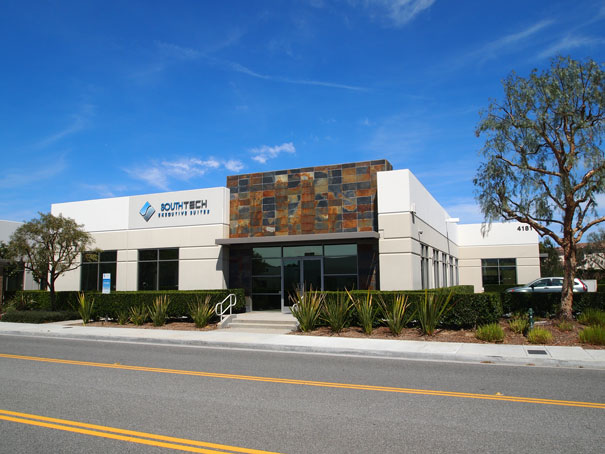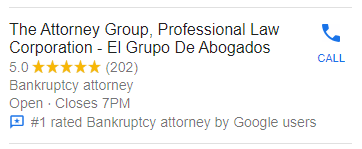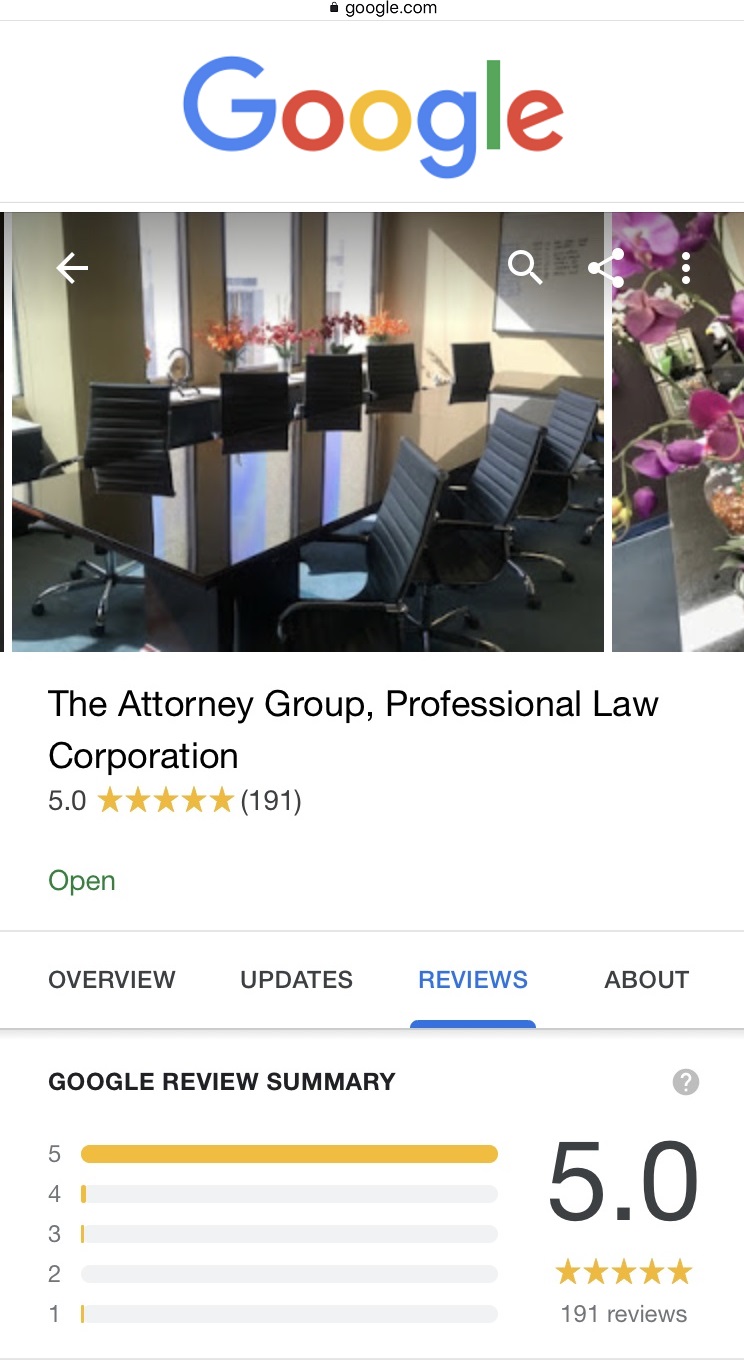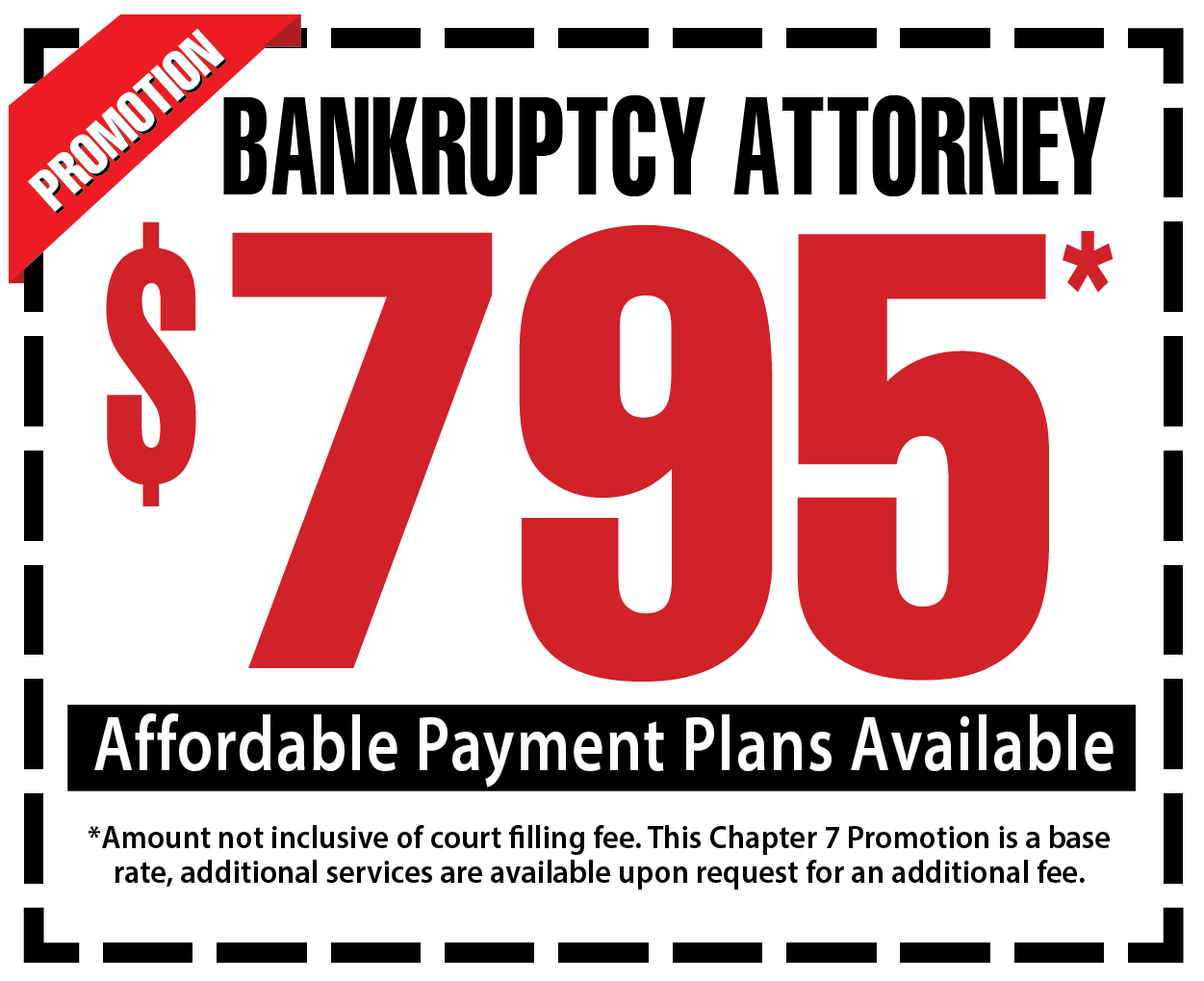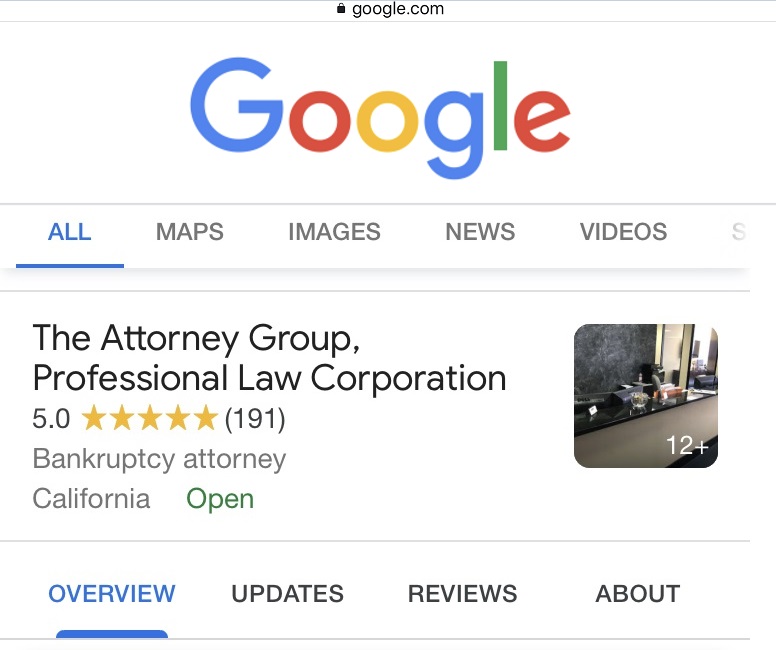|
Compton Bankruptcy Attorney - Expert Personal and Corporate Bankruptcy Lawyers serving Compton, California. If you are struggling financially and looking to speak with a Compton bankruptcy attorney, you've come to the right place. We will stop lawsuits, stop garnishments, stop, bank account levies, stop judgments and stop foreclosures. We have 36 locations to meet you in California.
Need immediate assistance? Contact us now!
Toll Free 1(888) 754-9877 Available 7 Days a Week 7am to 9pm 36 LOCATIONS IN CALIFORNIA 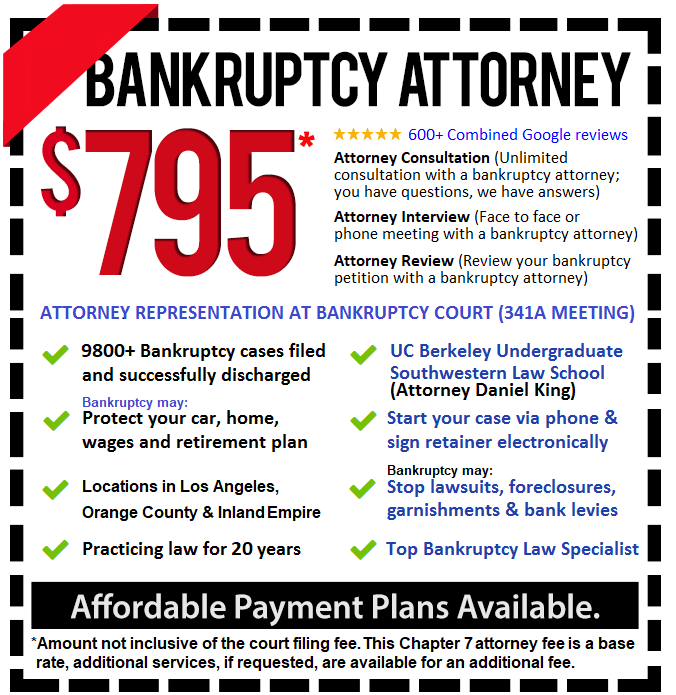
A bankruptcy is an opportunity to be relieved of constant harassing phone calls from creditors and collection agencies. Consulting with a bankruptcy attorney to see if a bankruptcy might be your best option, to determine if you qualify for relief and which chapter is appropriate based on your particular circumstances is essential. There are many misconceptions regarding bankruptcy. As a consumer or small business owner, you have the option of Chapter 7 liquidation or Chapter 13 reorganization. Chapter 7 Liquidation Chapter 7 can be utilized by individuals, married couples, businesses and corporations. In most consumer and small business cases, however, you are able to retain most if not all of your personal assets. Also, filing automatically stays or stops all collection activities. You have to qualify for a Chapter 7 proceeding. Your monthly income must be lower than the median income for your state. In California, the median income for a single individual is $47,798 and for two, $62,009. Otherwise, your disposable income must be low enough to qualify. This is determined by deducting your monthly expenses from your average monthly income over the past 6 months. If it is too high, you may still consider a Chapter 13 petition. In any bankruptcy, you must list all your creditors. You must also have not transferred any substantial property within 90 days of filing or within one year if such transfer was made to a relative or business partner or the court can void it. A list of your monthly expenses and assets is also required. You are entitled to certain exemptions regarding your personal assets so that the trustee will not seize them for the benefit of your creditors. For example, you can exempt a motor vehicle, much if not all of your home equity, retirement accounts, bank accounts, furniture, tools of your trade and other items. Consult with our expert bankruptcy lawyer about what exemptions are available to you. You must also take an approved credit counseling class before filing and a personal financial management class before your discharge. Most discharges occur about 4 months after you file. Your unsecured creditors, such as credit cards and medical expenses, are dischargeable. Chapter 13 Reorganization If your disposable income is too high, or if you wish to continue operating your small business, or you face foreclosure of your home, then a Chapter 13 is an option. You must have a steady income, though, to some degree, are paid within either a 3 or 5 year plan. The length of your repayment plan depends on your income. If it exceeds the state’s median, your plan will likely be 5 years. A chapter 13 can save your home from foreclosure provided you can make your regular monthly mortgage payments while repaying your arrearages over the life of the plan. Any second mortgage would be discharged at the termination of the plan if all is otherwise successful. Further, you can have past due taxes, student loans and child support payments paid off within the plan as well. Bankruptcy protection might be the relief you are seeking. Consult with an experienced bankruptcy attorney about your particular circumstances and to see if filing for bankruptcy is the right decision for you. |
Keep Your CAR
Keep Your HOUSE
Keep Your DIGNITY
Keep Your RETIREMENT
Keep Your 401K
Keep Your PENSION
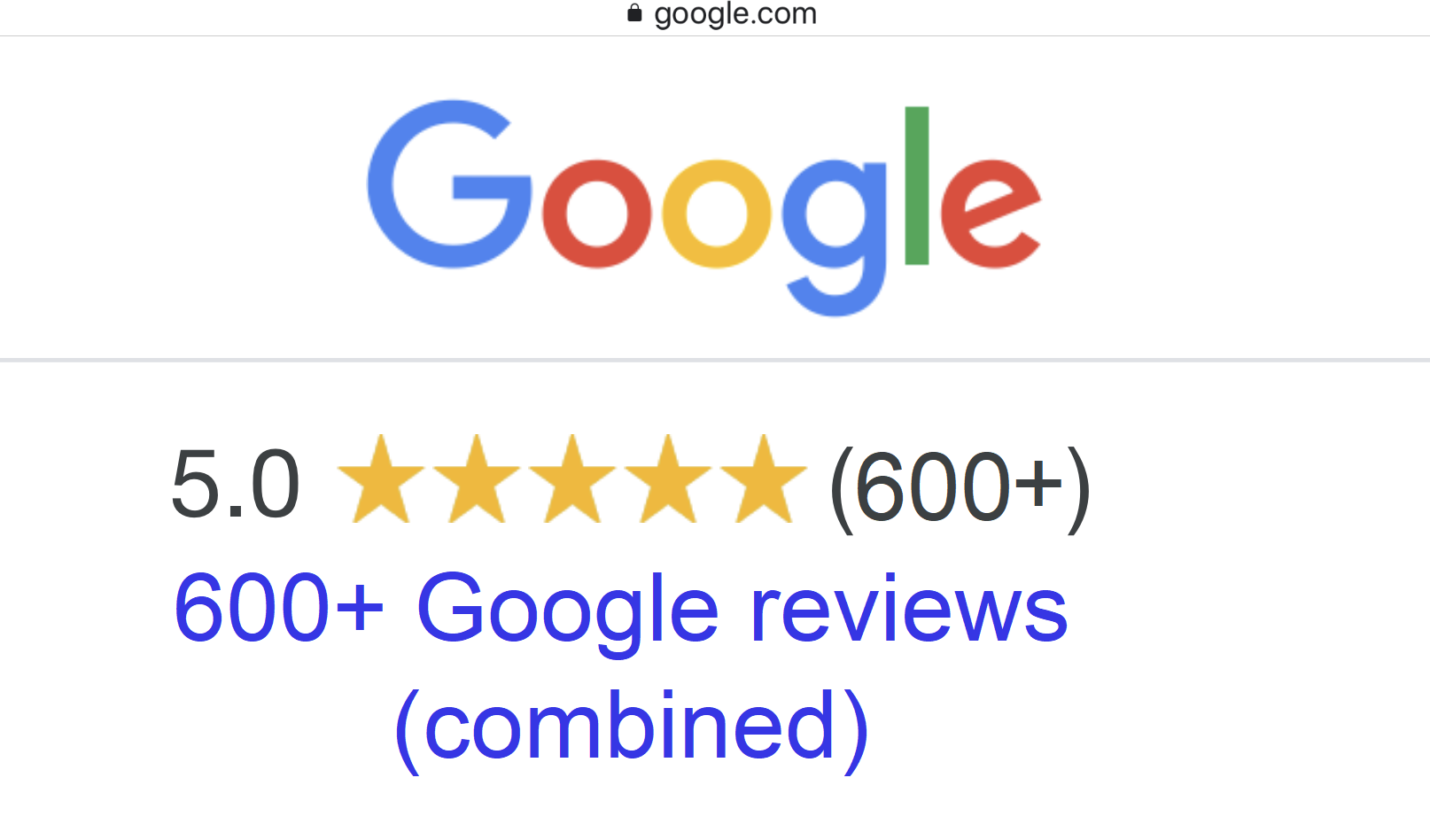
20
Years Experience
9,800+
Happy Clients
Daniel J King, Esq.
Managing Attorney / Owner
Many Locations
LA, OC, Inland Empire
AFFORDABLE
EASY Payment Plans
Phone Meetings
Start your case by phone Attorney meetings by phone
Phone or Zoom
Go to court by phone or zoom
$100+ Million
Discharged
Bankruptcy May Help You:
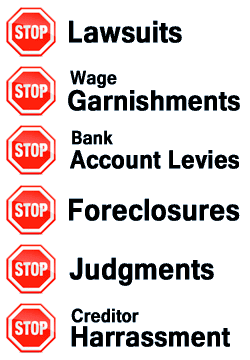
Free Consultation$100,000,000+ $100 Million Discharged
Bankruptcy May Help You:
Keep Your CAR
Keep Your HOUSE
Keep Your DIGNITY
Keep Your RETIREMENT
Keep Your 401K
Keep Your PENSION
|
|

Free Consultation
100% Free Consultation
(Today)

Process Petition
Become a client
Run Credit Report
Process Petition
Review/Amend Petition

Attorney Meeting
Review Petition
Confirm Petition
Prepare for BK Court

Freedom
341a Meeting of Creditors
(Bankruptcy Court)
with Bankruptcy Attorney
Attorney Daniel J King
Education: UC Berkeley UndergraduateSouthwestern University School of Law
$100,000,000+
$100 Million Discharged
| 20 | 9,800+ |
| Years Experience | Happy Clients |
About Compton
Compton is a city in southern Los Angeles County, California, United States, situated southeast of downtown Los Angeles. The city of Compton is one of the oldest cities in the county and on May 11, 1888, was the eighth city to incorporate. As of the 2010 United States Census, the city had a total population of 96,455. It is known as the "Hub City" due to its geographic centrality in Los Angeles County. Neighborhoods in Compton include Sunny Cove, Leland, Downtown Compton, and Richland Farms. The city is generally a working class city with some middle-class neighborhoods and is home to a relatively young community, at an average 25 years of age, compared to the American median age of 35.
Since the 1980s, the city of Compton was popularized in American media due to many hip hop groups and rappers originating from the community, such as the gangsta rap group N.W.A, who are best known for their debut album, Straight Outta Compton, and are widely considered one of the seminal acts of the gangsta rap sub-genre. The city of Compton as well as southern Los Angeles County in general is notorious for its heavy concentration of gangs and gang violence, such as the Bloods, the Crips, and Sureños, which all originated in the Los Angeles area.
In 1784, the Spanish Crown deeded a tract of over 75,000 acres (300 km2) to Juan Jose Dominguez in this area. The tract was named Rancho San Pedro. Dominguez's name was later applied to the Dominguez Hills community south of Compton. The tree that marked the original northern boundary of the rancho still stands at the corner of Poppy and Short streets. The rancho was sub-divided and parcels were sold within the Californios of Alta California until the lands were ceded after the Mexican-American war in 1848. American immigrants acquired most of the rancho lands after 1848.
In 1867, Griffith Dickenson Compton led a group of thirty pioneers to the area. These families had traveled by wagon train south from Stockton, California in search of ways to earn a living other than in the rapid exhaustion of gold fields. Originally named Gibsonville, after one of the tract owners, it was later called Comptonville. However, to avoid confusion with the Comptonville located in Yuba County, the name was shortened to Compton. Compton’s earliest settlers were faced with terrible hardships as they farmed the land in bleak weather to get by with just the barest subsistence. The weather continued to be harsh, rainy and cold, and fuel was difficult to find. To gather firewood it was necessary to travel to mountains close to Pasadena. The round trip took almost a week. Many in the Compton party wanted to relocate to a friendlier climate and settle down. But there were only two general stores within traveling distance, one in the pueblo of Los Angeles, the other in Wilmington, so they eventually made the decision to stay put.

Need Help? Call: 1-888-754-9877
The information on this website is for general information purposes only. Nothing on this site should be taken as legal advice for any individual case or situation. This information on this website is not intended to create, and receipt or viewing of this information does not constitute, an attorney-client relationship.
LOCATION DISCLAIMER: The Attorney Group has a main office in Anaheim Hills, California. All other addresses are local offices available on an advanced appointment basis for meetings and depositions.
